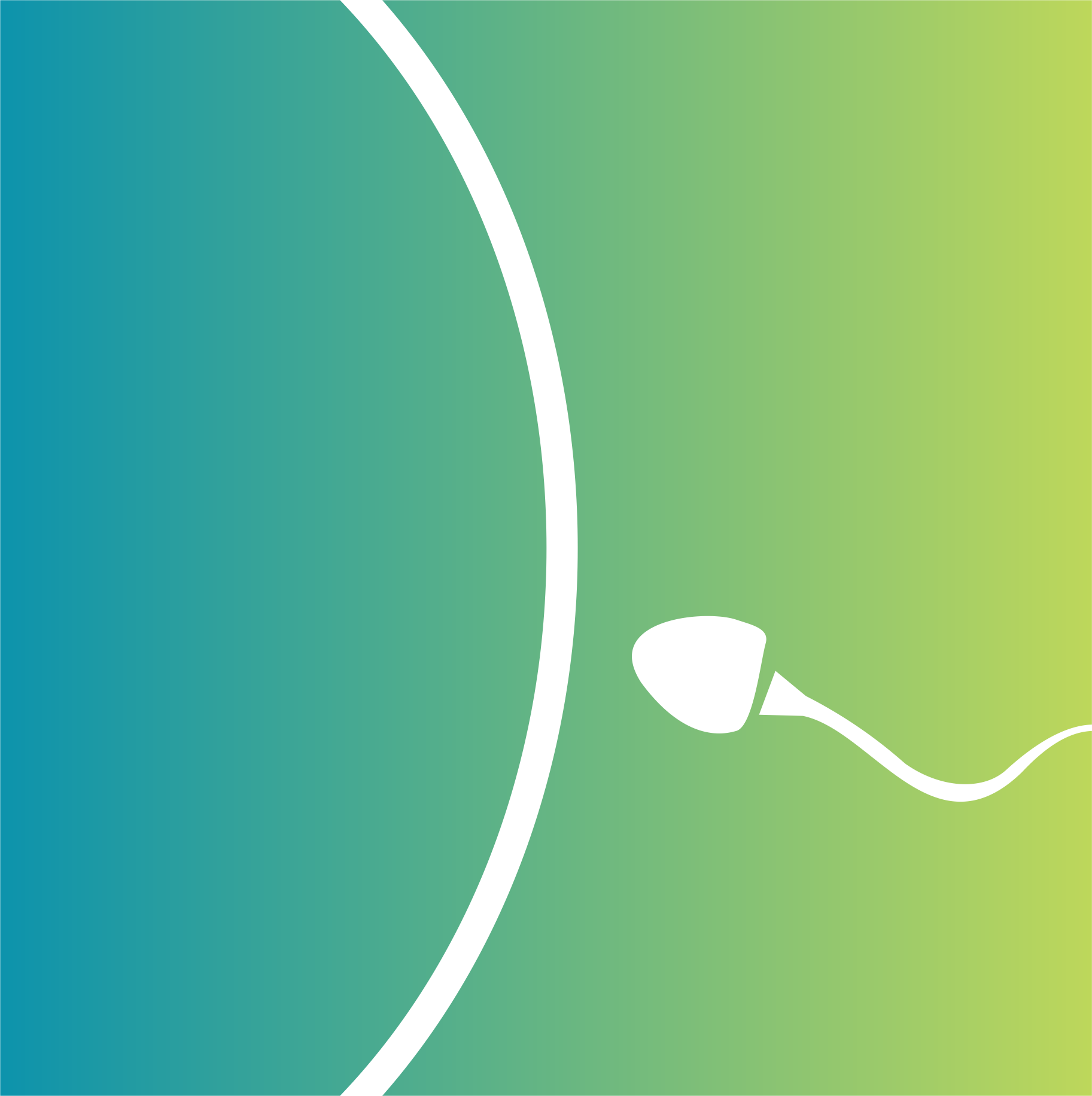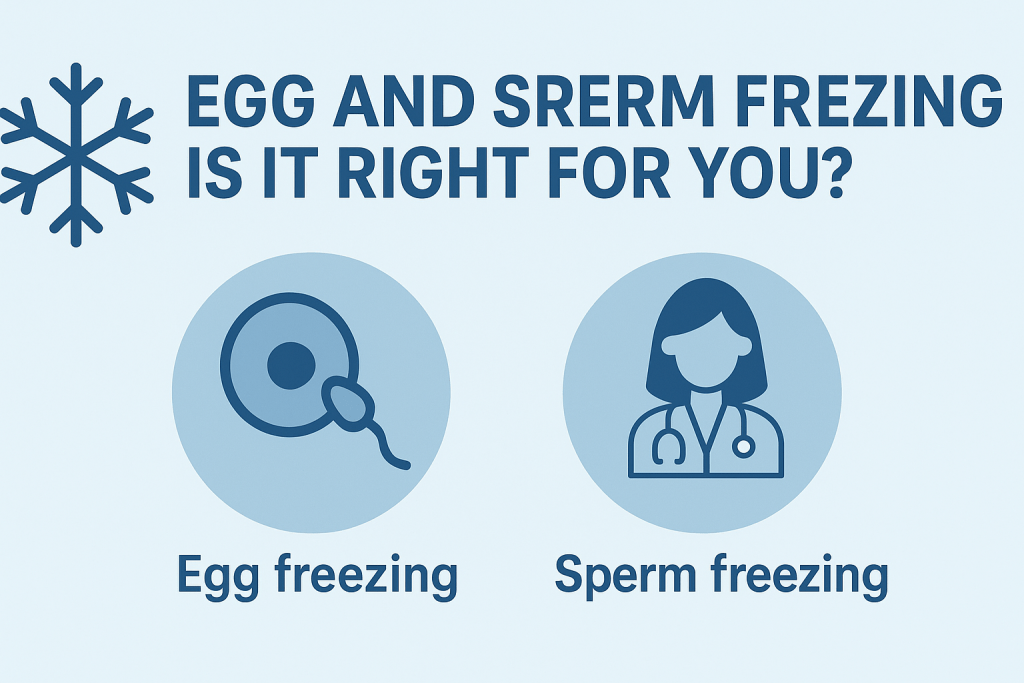Preserving Fertility for the Future
As more people choose to delay parenthood—whether for career growth, education, health, or timing—cryopreservation (egg and sperm freezing) offers empowering fertility preservation. By freezing gametes at a younger biological age, you can help safeguard your future fertility. At Trinity IVF, we provide safe, advanced, and compassionate fertility preservation services.
❄️ What Is Cryopreservation?
Cryopreservation is the process of flash-freezing eggs, sperm, or embryos at ultra-low temperatures (–196 °C), storing them in liquid nitrogen to keep them viable for years without degradation.

🧬 Why Freeze Eggs or Sperm?
✅ Common Reasons to Consider:
Delaying Parenthood Due to Career, Studies, or Personal Timing
Many individuals and couples choose to postpone having children to focus on career growth, higher education, or personal goals. Fertility preservation through egg or sperm freezing allows you to keep your reproductive options open while maintaining the potential for a healthy pregnancy in the future.
Medical Treatments That Threaten Fertility
Certain treatments, such as chemotherapy, radiation, or major surgeries, can negatively affect fertility. Freezing eggs, sperm, or embryos beforehand provides a safeguard, ensuring the possibility of starting a family once treatment is complete. Early planning with a fertility specialist can significantly improve success rates.
Low Ovarian Reserve or Declining Sperm Quality
Age-related fertility decline or medical conditions can reduce egg quality or sperm count. Fertility preservation offers an opportunity to store healthy gametes for future use, increasing the chances of conception later in life. Regular fertility assessments can help you decide the optimal time for preservation.
Personal Choice to Keep Future Family Options Open
Some individuals may want to delay family planning simply to have more control over life decisions. Fertility preservation provides peace of mind, allowing you to choose the right time for parenthood without compromising fertility.
Gender-Affirming Treatments
For transgender or non-binary individuals planning hormone therapy or gender-affirming surgeries, preserving fertility before treatment is crucial. Freezing eggs or sperm ensures that future reproductive options remain available, aligning medical care with long-term family planning goals.
Other Health Conditions
Certain medical conditions like endometriosis, autoimmune disorders, or genetic conditions can impact fertility. Early consultation and fertility preservation can help mitigate risks and secure the possibility of biological parenthood.
Peace of Mind for the Future
Even if there’s no immediate plan for children, fertility preservation offers reassurance and flexibility, letting individuals focus on life goals without worrying about declining fertility.
At Trinity IVF, we support every personal choice with expert consultation and personalized care.
👩⚕️ Egg Freezing Explained
Egg quality and quantity decrease over time, especially after age 35. Freezing in your 20s or early 30s offers higher success—but freezing up to age 38 still yields meaningful outcomes.
Egg Freezing Process:
- Ovarian stimulation: Hormone injections for 10–12 days
- Egg retrieval: Minor procedure under light sedation
- Vitrification: Rapid flash-freezing of mature eggs for storage
Later, these eggs can be thawed, fertilized via IVF, and transferred when you’re ready.
🧔 Sperm Freezing Made Simple
Sperm freezing is quick, non-invasive, and highly effective:
- Men provide a semen sample
- It’s analyzed, frozen, and stored in liquid nitrogen
Ideal for those undergoing vasectomy, cancer treatment, testosterone therapy, or wanting to secure future fertility.
Our cryolab guarantees high standards of safety and quality.
📊 Success Rates & Storage Duration
📌 Cryopreserved eggs and sperm remain viable for 10+ years. Key success factors include:
- Age at freezing (younger = better outcomes)
- Gamete quality
- Clinic expertise and protocols
Trinity IVF has supported successful conceptions using eggs and sperm frozen 5–7 years prior.
💰 Costs & Considerations
Understanding costs is essential:
- Egg retrieval
- Freezing costs
- Annual storage fees
We offer affordable packages and transparent pricing to help you navigate financial planning.
🧭 Is It Right for You?
Ask yourself:
- Do I want children in the future, but not right now?
- Am I facing medical treatment that could affect fertility?
- Is my ovarian reserve or sperm health declining?
If yes, fertility freezing may be a wise choice. At Trinity IVF, we provide detailed assessments and honest guidance tailored to your situation.
💬 Trinity IVF’s Personalized & Supportive Care
We recognize that this decision is deeply personal. That’s why we offer:
- Thorough consultations and fertility evaluations
- Customized treatment plans
- Medical and emotional support throughout the process
Let us help you preserve your reproductive options—on your terms.
🙋 Frequently Asked Questions (FAQs)
1. What’s the best age to freeze my eggs?
The ideal time to freeze eggs is in your 20s to early 30s, when egg quantity and quality are at their peak. Freezing eggs at a younger age increases the likelihood of successful fertilization and healthy embryo development later. However, women up to age 38 can still benefit from egg freezing with proper planning and guidance from a fertility specialist. Early consultation helps tailor your treatment plan and maximize future fertility potential.
2. How long can frozen eggs or sperm last?
At Trinity IVF, eggs and sperm are stored in state-of-the-art cryopreservation facilities using advanced freezing techniques like vitrification for eggs and controlled-rate freezing for sperm. Gametes can remain viable for 10 years or more, and successful pregnancies have been reported using samples stored for 7+ years. Regular monitoring and proper storage conditions ensure long-term safety and effectiveness.
3. Is the egg retrieval procedure painful?
Most patients report only minimal discomfort, as the procedure is performed under light sedation or anesthesia. Egg retrieval is quick—usually completed within 20–30 minutes—and most women resume normal activities within a day. Your fertility specialist will provide detailed aftercare instructions to minimize discomfort and support a smooth recovery.
4. Does sperm freezing require special preparation?
Sperm freezing is simple and non-invasive. You’ll provide a semen sample in a private, comfortable environment. After initial analysis, the sample is mixed with cryoprotectant media to protect sperm during freezing. The frozen sample is safely stored in liquid nitrogen tanks, ready for future use in procedures like IVF or ICSI. Men are advised to avoid alcohol, smoking, and excessive heat exposure before sample collection to ensure optimal sperm quality.
5. Will insurance cover cryopreservation?
Insurance coverage for egg or sperm freezing varies by provider and policy. Many plans do not fully cover cryopreservation, especially if it’s for elective fertility preservation. At Trinity IVF, we offer affordable packages, transparent pricing, and flexible payment options to make fertility preservation accessible. Our counselors guide you through cost planning, financing options, and long-term storage arrangements, ensuring a stress-free experience.ns.
✅ Conclusion
Egg and sperm freezing offer powerful options for future family planning. If you’re delaying parenthood, facing medical treatments, or want reproductive peace of mind, cryopreservation could be a proactive step. At Trinity IVF, we deliver expert guidance, advanced care, and emotional support to help you protect your fertility journey.

